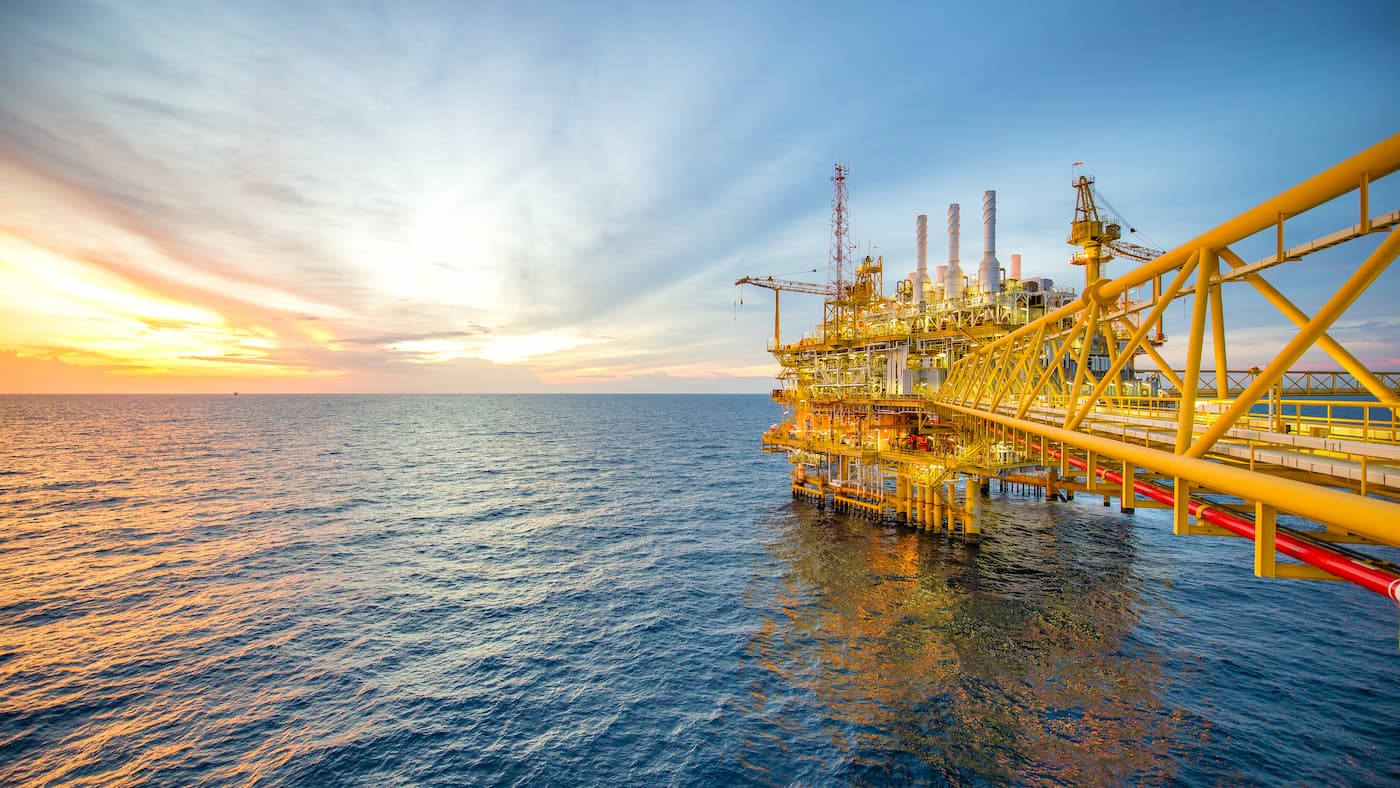Delivering Barrels: Working as a Well Intervention Engineer
Culture and Values

Culture and Values
The energy industry is continually evolving, embracing greater workplace flexibility and placing a growing emphasis on environmentally sustainable practices. We spoke to Kellie, a Brunel specialist currently working as a well intervention engineer. With over nine years of experience in the oil and gas sector, she shares valuable insights into her journey through this dynamic industry.

Well Intervention Engineer
Kellie, originally from New Zealand, lives with her husband and children in Aberdeen, Scotland. As a well intervention engineer, she plays a crucial role in overseeing activities throughout the entire lifecycle of an oil or gas well, from the initial planning and design phases to the eventual abandonment or decommissioning of the well.

In the context of the oil and gas industry, a "Christmas tree" refers to the assembly of valves, spool, and fittings that are installed on top of an oil or gas well. Its name comes from its resemblance to a decorated tree, especially when it is adorned with various valves and fittings.
I studied chemical and process engineering at university back home in New Zealand. When I graduated, the primary options within my field of study were either in the oil and gas sector or the dairy industry. Given my desire for travel opportunities, I decided to pursue a career in the oil and gas industry due to the wider array of options it presented for me to explore.
Absolutely, I certainly did. Many major companies offer a graduate programme that requires a minimum of two years' work experience on a drilling rig. My initial role was as a well-site drilling engineer on an exploration drilling campaign utilizing a semi-submersible. Given the offshore nature of the work, I essentially lived out of a suitcase and followed a rotation schedule—three weeks on and three weeks off. During my three weeks off, I had the freedom to be anywhere. I'd typically leave my belongings at my parents' house and embark on travels. Given New Zealand's proximity to Asia, I took the opportunity to do a lot of backpacking, which was an incredible experience.
It certainly varies depending on the projects you're involved in. My onshore assignments were often in the heart of the Australian desert, where temperatures soared up to 40 degrees Celsius, and we had occasional encounters with aggressive kangaroos. In my experience, one big difference was the fast-paced nature of the work—drilling a well, completing it and then having it operational within a tight window of 48 to 72 hours.
Sure. I moved here with my family nearly three and a half years ago due to my husband’s job. Initially, I secured a position as an operations engineer. However, the Covid-induced downturn prompted me to pursue my MBA. Subsequently, I joined the Aberdeen Drilling School as an instructor and focal point for HSSE (Health, Safety, Security, and Environment). A few months later, in October 2022, a Brunel recruiter contacted me on LinkedIn for a position as well intervention engineer at a prominent multinational energy corporation. Since then, I've been working as a Brunel specialist. And I must say I'm quite pleased with the level of communication and engagement with my Brunel consultant, Michelle. She constantly checks in with me, and whenever she's in town, we make it a point of meeting up. This level of interaction truly creates a sense that you belong to a community. Moreover, connecting with other Brunel employees gives me great networking opportunities beyond my specific line of work.
To put it simply, a well intervention engineer is sort of like a car mechanic for wells. We are responsible for repairing wells and improving well performance. When the drillers create the wellbore and the completion engineers install the necessary piping, we step in and address any issues that arise or hinder functionality. So, our objective isn't just fixing problems: It's also about maximizing production.
What I enjoy most is being involved in each stage of the project’s lifecycle. I do all the planning up front and then also act as an operations engineer once the project is underway. Lately, a significant portion of my focus has been on replacing and repairing what we call Christmas trees, the critical components atop wells that guide the flow of fluids. Since I’m currently managing two old platforms in the North Sea, I've also gained experience with subsea equipment related to a process known as "plug and lubricate", which is typically employed when preparing wells for abandonment. "Plugging" essentially entails sealing or isolating targeted sections of the wellbore using a variety of materials. Conversely, "lubrication" involves applying specialized fluids or lubricants to minimise friction and ease the movement of tools, equipment or materials downhole.
In my opinion, being proactive is key, given the inherently reactive nature of the job. Anticipating potential issues and planning ahead are vital aspects of ensuring successful interventions. Moreover, establishing and maintaining strong relationships with vendors is crucial. That gives you the ability to reach out on short notice in the event of equipment breakdowns and facilitate prompt solutions. Familiarity with various intervention techniques, tools and industry-specific equipment is also beneficial. A well-rounded understanding allows for informed decision-making and the effective application of the most suitable interventions to enhance well performance. Essentially, well intervention engineers play a critical role in optimizing the speed and efficiency of oil or gas production from a well. Our expertise and interventions have a direct impact on the operational pace and the achievement of the desired output.
There is a growing recognition of the significance of diversity and gender balance within the energy sector. Many organisations have introduced regulations and quotas aimed at promoting women to leadership positions across various companies. However, despite the existence of quotas, companies often struggle to place women in senior or managerial roles due to the demanding and inflexible nature of many positions. This is particularly evident in operational roles. For instance, as a well operations team leader, you are essentially on call 24/7 due to the continuous operation of rigs. In the past, the morning call with the rig was at 8 a.m., which posed challenges for individuals with family responsibilities like dropping off kids at the nursery or school before that time. Fortunately, there has been a recent shift in mindset, considering a move of the call to 9 a.m. to accommodate a better work-life balance for working mothers. Although the traditionally male-centric image of the energy sector has been eased slightly by providing more flexibility and support for women, there is still plenty of room for improvement.
I have indeed observed a noticeable shift. We now have specific key performance indicators (KPIs) to monitor our greenhouse gas emissions. A significant portion of our operations has transitioned to electrification, but we're continuously exploring additional methods to further reduce our carbon footprint. For instance, each time we utilise a truck, it contributes to our operational emissions, so we are constantly looking for ways to minimise these impacts. Essentially, the job remains the same, but our focus is now also on enhancing efficiency while aiming for a smaller environmental footprint.
Connecting Specialists to Pioneering Projects